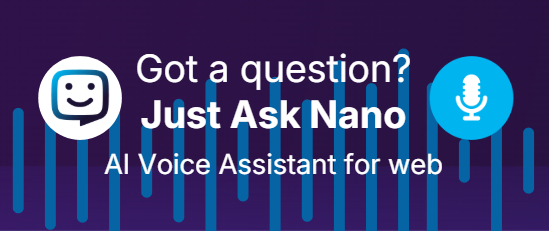
It is not so long ago that someone might have thought you mad to shout into the air “OK Google, what is the weather going to be like today?” or “Alexa, play Baby Shark”. But even those that don’t use the likes of Alexa at least understand what is happening – people using voice technology to communicate their requirements into a device.
This is not a new technology
For decades we have been able to give numbers and letters to an automated phone system to make menu choices. But traditional voice-based services (IVR) were definitely a slow burner because of the cost and complexity to develop and an unnatural conversational interface. However, with the investments and developments made in artificial intelligence (AI), natural language processing (NLP) and natural language understanding (NLU), speech assisted technology (think voice activated chatbots and virtual assistants) have taken great leaps in the last 10 years.
Consumers are the drivers

Consumers have eagerly adopted voice-enabled search on mobile devices, and now home assistants. It is easier and quicker to use your voice than it is to type – it is believed it can be three to five times faster to do a voice search.
Perhaps one of the most important drivers for adoption of voice-assisted technology is accessibility. Globally more than 1 billion people are limited in their ability to communicate online, for reasons from access to technology, physical disability, to simply lacking the ability to read and write. Voice is a great equalizer, so the recent increase in interest in voice-based chatbots and speech assistants should not be that surprising.
Businesses are lagging behind
If customers love speech-based chatbots so much, why are businesses slow to adopt?
Previously to go from a conversational AI, screen-based chatbots to voice-based has been a complex and expensive process. For those organisations that have no chatbot or virtual assistant at all, the thought of creating a voice-based speech assistant from scratch may seem like to big and expensive a task. However developments in technology and a pay as you use consumption model now mean speech assistants, with back-end data integration can be created and made live in a matter of weeks, providing a fast Return On Investment.
From local businesses to large global brands, the inclusion of voice technology in your strategy will help you maintain competitive advantage.
Find out how you can customise speech-based virtual assistant:

Voice is the next big thing
Voice is quickly becoming a business imperative to engage and satisfy customers. The risk to companies is missing out on what is the easiest and often preferred way that customers want to engage with them.
Voice is joining web and mobile as the primary means of communication – meet and serve your customers instantly on their favourite device, through their channel of choice.
Contact us or call us on 0333 6000 360 and we can show you see how a speech-based virtual assistant can transform your business.







